The Role Of Music In Brain Development
by on 02/08/2025 ...

It is safe to say that every person, young or old, is surely to appreciate some form of music in their life! Music is such a huge part of society that it would even make sense to say that life would be quite lost without the presence of music. However, music as entertaining as it is, does much more than provide enjoyment to the spirit! It also makes one smarter! So, let’s check out how we can build more brains with music…

A number of researches have uncovered that improving children’s musical abilities can actually help boost the development of the brain and helps them greatly in subjects like arts, language, mathematics and even science! Neuroscientists have been hard at work on deciphering this theory and they have uncovered many new reasons to believe why music can help in brain developments. These discoveries have managed to point to significant increase in the brain function, brain volume, as well as active connectivity of different brain regions.
Playing an instrument may also change the ability of the brain to interpret information and assimilate a wide range of sensory information. In regards to this though, it will be wise to keep in mind that the process of learning, especially for children, have better and more outstanding outcome when it is initiated early as possible in life. This is in line with the fact that children absorb and learn the most between the time they are born to six years of age, after which, the ability to learn anything new slowly declines.
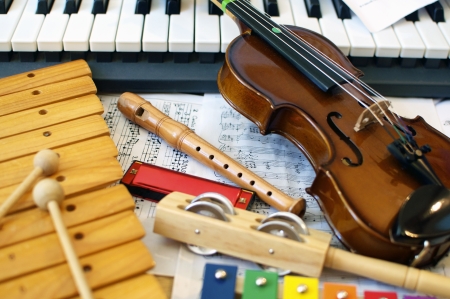
According to a recent study published in the Journals of Neuroscience, the best age for children to learn about music and take on music classes is before seven years old. This phase is known to some as the ‘sensitive period’ when it comes to learning. Continuous involvement in music and musical trainings during this window of time will tweak the learning ability in children. This heightened learning ability will then interact with normal brain development to produce a long-lasting change even in motor ability and brain structure.
When learning to play a musical instrument, children are actually learning via three important methods. They are:
- Auditory learning: This means learning through listening. It is an essential part of learning to play an instrument and how to make different sounds to form a tune. By listening, children will sharpen their auditory senses and be more aware and sensitive about the sounds of their instruments and others’ as well.
- Visual learning: Visual learning involves sight and noticing details about the instrument and how it is played. Children will have to look and notice everything there is no know about the instrument they are learning about so that they can produce their own playing style.
- Kinesthetic learning: When learning to play a musical instrument, kids will have to use and manipulate different body parts to work the instrument.
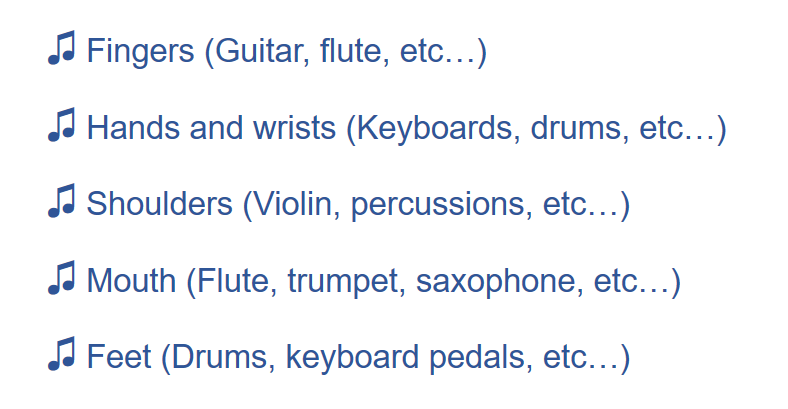
Since music is all about sound and rhythm, music classes will inevitably serve to enhance kids’ auditory learning by ways of listening to the tunes, beats, notes and so on. They will also learn to read and understand musical notes and symbols and all these lend a positive impact to their overall abilities to learn.
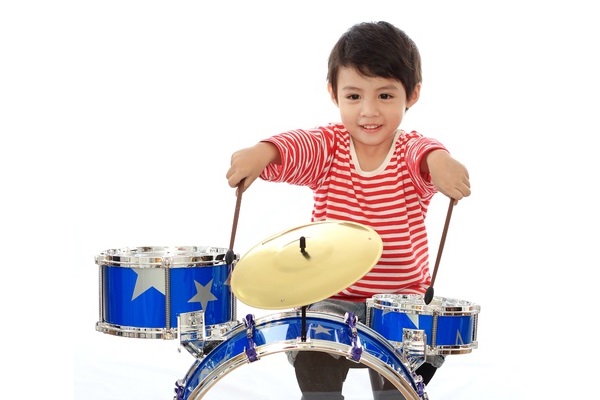

The process of learning stimulates the neurons in one’s brain, allowing it to hold and also transfer information effectively. Studies have shown music students produce dopamine, dubbed as the magical neurotransmitter, more readily compared to other kids. Dopamine helps to speed up the information transfer (synapse process) in the brain.
Children will find learning a breeze when they can absorb more information, think critically and come up with many ideas of their own and so on. However, as musical talents vary from child to child, some children may take a little longer to find their footing in the world of music, but rest assured that once they do, there will be no turning back, so to speak! Whether it is a natural gift or a learnt skill, musical abilities, in one way or another, will surely benefit a child in the long run.

Children exposed to a multi-year programme of music tuition involving training in increasingly complex rhythmic, tonal, and practical skills display superior cognitive performance in reading skills compared to their non-musically trained peers, according to a study published in the journal – Psychology of Music. Here are the areas a child will inevitably improve while learning about music.
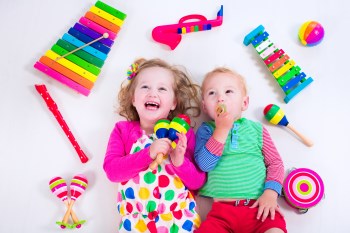
Concentration
Music students are found to be more focused at school and at play too. This is because, learning an instrument requires a great amount of attention to get the tunes, sounds and notes rights. On the long run, continuous practice of musical instruments can help them stay focused for longer periods of time.
Coordination
There is nothing like learning a musical instrument to sharpen one’s multi-tasking skills! For example, while learning to play a guitar, your fingers will have to be strumming the guitar strings while you look and study the music notes, listen to instructions or even listen to the sounds from other instruments. Hand and-eye coordination will improve dramatically too.
Self Esteem
Playing one’s favourite tune (and playing it well!) can do wonders for your self-esteem! Applause from adoring listeners can make any music student’s day. Whether it’s for an audience or just to entertain one’s own self, playing a musical instrument well and making some fine music with it can boost a child’s feeling of self-worth and add to his or her confidence level. This in turn, will bring about the desire to keep improving and reach new heights in his or her musical achievements.
Perseverance
Learning to play a musical instrument can be tough. There are lessons and levels to complete, theories to study and concepts to understand. It is therefore safe to say that once a child is enrolled in a music class, that child will surely emerge at the end of it a better, more patient and determined person.
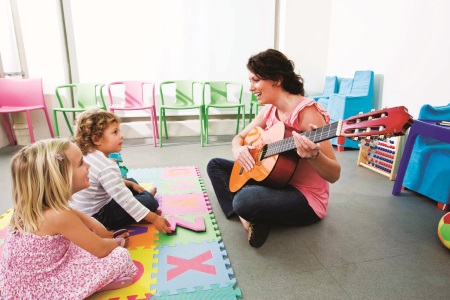

Forcing a child to take up music is not advised. Instead, parents should try to nurture the love for music instead. The first step in this direction, is of course, exposing your child to different kinds of music and musical instruments. This will help you gauge the kind of music which your child is naturally attracted to. If the love is natural, then no force is needed to learn more about it. By knowing what kind of music your child is drawn to, you will probably be able to determine the type of instrument he or she will be interested in learning!
Paul Borgese, an award winning children’s book author, suggests that parents begin to nurture the interest of their children towards music starting from a very young age. According to Borgese, children begin to take interest in music from as young as three years old. This is the best time for parents to get to know what their children like or dislike in music. Toy instruments are a great way to determine what musical instrument strikes a kid’s fancy. Although preference may change as a child grows older, if a child seems to clearly gravitate towards a toy piano, for instance, and can’t seem to have enough of it, or is interested in TV shows which feature piano-playing, then enrolling him or her in a beginner’s piano class might be a good idea.
This article is taken from Smart Kids World issue 2014 Vol.04.































